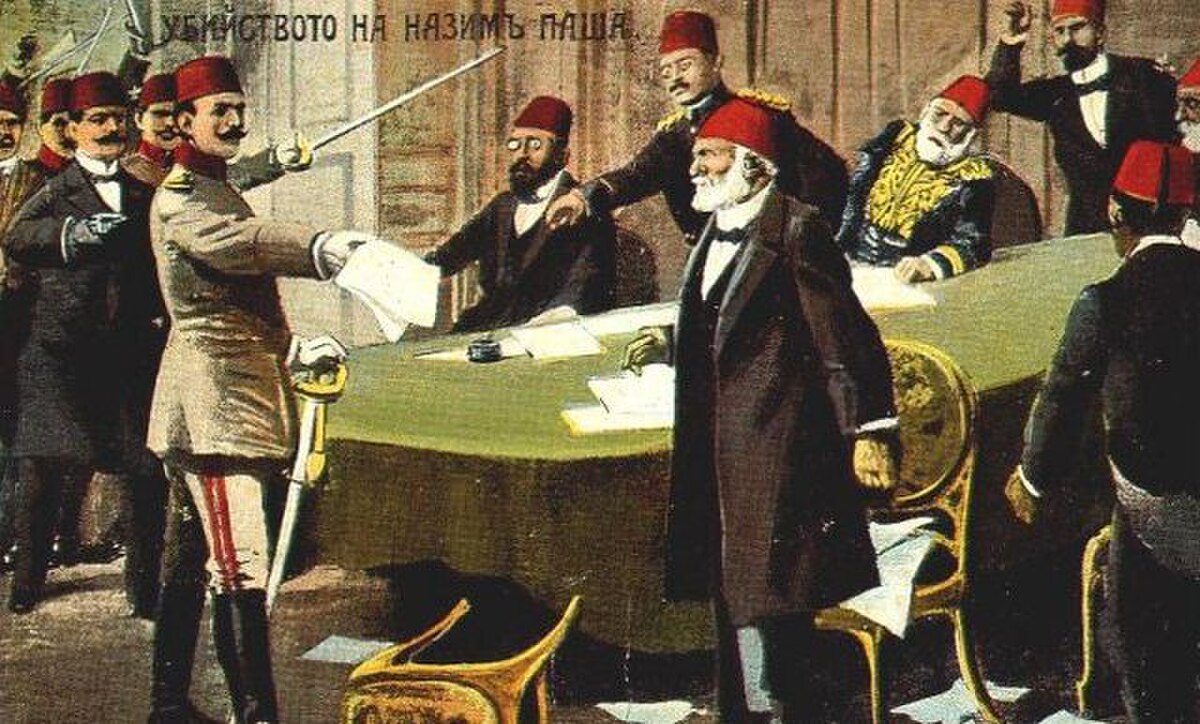
1913 Ottoman Coup d'état
TürkiyeThe 1913 Ottoman coup d'état was a coup d'état carried out in the Ottoman Empire by a number of Committee of Union and Progress (CUP) members led by Ismail Enver Bey and Mehmed Talaat Bey, in which the group made a surprise raid on the central Ottoman government buildings, the Sublime Porte. During the coup, the Minister of War, Nazım Pasha, was assassinated and the Grand Vizier, Kâmil Pasha, was forced to resign. After the coup, the government fell into the hands of the CUP, now under the leadership of the triumvirate known as the "Three Pashas", made up of Enver, Talaat, and Cemal Pasha.
In 1911, the Freedom and Accord Party (also known as the Liberal Union or Liberal Entente), Kâmil Pasha's party, was formed in opposition to the CUP and almost immediately won the by-elections in Constantinople (now Istanbul).[83] Alarmed, the CUP rigged the general elections of 1912 with electoral fraud and violence against Freedom and Accord, earning them the nickname "Election of Clubs".[84] In response, the Savior Officers of the army, partisans of Freedom and Accord determined to see the CUP fall, rose up in anger and caused the fall of the CUP's post-election Mehmed Said Pasha government.[85] A new government was formed under Ahmed Muhtar Pasha but after a few months it too was dissolved in October 1912 after the sudden outbreak of the First Balkan War and military defeat.[86]
After gaining the permission of sultan Mehmed V to form a new government in late October 1912, Freedom and Accord leader Kâmil Pasha sat down to diplomatic talks with Bulgaria after the unsuccessful First Balkan War.[87] With the Bulgarian demand for the cession of the former Ottoman capital city of Adrianople (today, and in Turkish at the time, known as Edirne) looming and the outrage among the Turkish populace as well as the CUP leadership, the CUP carried out the coup on January 23, 1913.[87] After the coup, opposition parties like Freedom and Accord were subject to heavy repression. The new government led by Mahmud Şevket Pasha with Unionist support withdrew the Ottoman Empire from the ongoing London Peace Conference and resumed the war against the Balkan states to recover Edirne and the rest of Rumelia, but to no avail. After his assassination in June, the CUP would take full control of the empire, and opposition leaders would be arrested or exiled to Europe.
